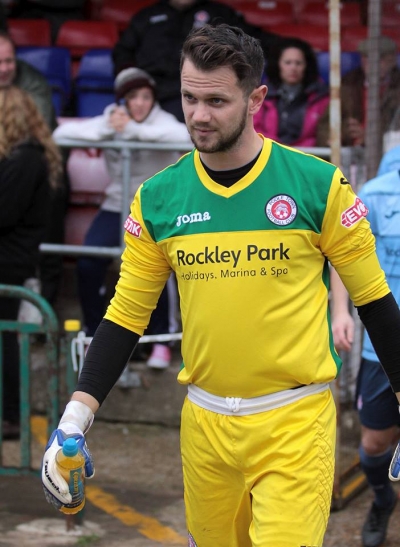Being a goalkeeper, working as a goalkeeping coach and a sport psychologist I am often asked, “What psychological qualities do you think are important in a goalkeeper”.
This question is posed to me by parents, coaches, fellow goalkeepers and people with a general interest in goalkeeping and often a lot of people will say “you have to be mad to be a goalkeeper” which you can’t really argue with. It is a position on the pitch where you can play well for 89 minutes and 55 seconds but have that one moment of 5 seconds that can cancel out all the hard work. For that reason there is a great deal of pressure and you have to posses a number of psychological qualities that will help you perform at your best but also to recover quickly if you do make a mistake.
The first major quality you have got to have is CONFIDENCE. If you possess confidence then you not only perform better yourself but you will pass confidence through the team that is in front of you. Confidence is developed over time and will fluctuate with performances. The main thing is to keep control of your emotions when you play so that you don’t get overly excited when you do things well and you don’t get too down on yourself when things go wrong. This way you will think consistently which in turn will help you to play consistently. As soon as you start to think, “I dropped the last cross” or “my last kick was poor” you will begin to doubt your ability which will affect your confidence and decision making. Stay in the present and focus on what needs to be done, “are my defenders in the right position”, “is my starting position good” etc and you will play much better and give confidence to your defenders.
The second quality you must possess is COMMUNICATION. When you are in goal you can see everything and if you have effective communication and can set up a team in front of you well then you can prevent the ball coming anywhere near your goal. You should aim for LOUD, CLEAR AND CONCISE communication. The information may not always be right but if it is LOUD, CLEAR AND CONCISE then it will prevent mix ups between you and team mates that could cause a goal to be conceded.
CONCENTRATION is the third skill that is very important. Being in goal a game can sometimes pass by with you having very little to do. If you can maintain your CONCENTRATION then you can reduce the chance of making a mistake and ensure that when you are called upon to do something you do it effectively. This will help the CONFIDENCE of you and your team mates as they will know you are there if and when required. One way to help you to keep your CONCENTRATION is to continuously COMMUNICATE with the players in front of you. Again not only does this help with your CONCENTRATION but it also helps your team mates to stay alert and in position ready to cut out any danger as far away from your goal as possible.
Being CALM is a key attribute to have as a goalkeeper. Your calmness will feed through the team and allow the players to have less tension, making better decisions and preventing mistakes. An example of when it is important to stay CALM is when you have made a great save and the ball has gone for a corner. If you get too excited then you may make the wrong decision when the ball is crossed and negate the great save you have just made. You can help yourself stay CALM by being aware of your emotions when you are on the pitch. When you feel your heart rate is getting too high or you are losing control of your emotions then self talk is a good psychological technique to use. Phrases such as “STAY CALM”, “FOCUS” and “KEEP TALKING” are good to keep you CALM and in the present moment.
The final quality to have is CONTROL. You have to be able to CONTROL how you act and feel, and you also have to have the ability to influence how your team mates act and feel. This can be done through displaying positive body language, standing big in the goal rather than being slumped. It is also possible to do this through the way you COMMUNICATE with your defenders and recognising when the COMMUNICATION has to be CALM and when it has to be AGGRESSIVE. This will have a significant impact on how the players will respond to the COMMUNICATION you are trying to get across to them and how they subsequently behave. People talk about goalkeepers having a presence in the goal and this presence is built through how the goalkeeper interacts with their defenders and the decisions they make when they are in the goal.
To summarise, being a goalkeeper is a tough position and you will have moments when you make mistakes. If you accept that you are going to make the odd mistake and work on the 5 C’s mentioned above (confidence, communication, concentration, calmness, control) you will work towards making less mistakes and having a more positive influence on the players who play in front of you. One of the main reasons that goalkeepers peak at a later age than outfield players is that they rely less on their physical fitness and more on their psychological state and understanding of the game which makes their decision making better.
Keep working hard, keep learning from your mistakes and keep developing.



